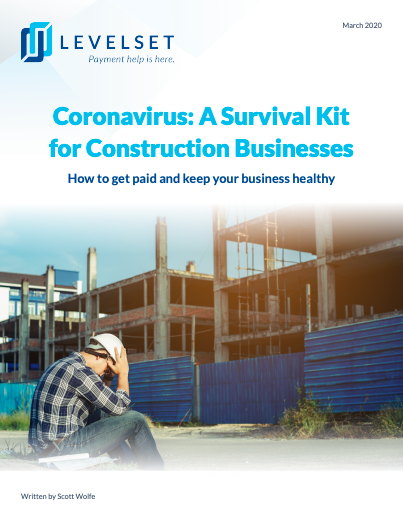
With the increasing risks and concerns associated with the coronavirus, construction companies need to begin preparing for setbacks that may arise. One particular area of concern is the contractor’s obligation under a contract when the circumstances hinder or prevent them from being able to perform. Coronavirus may provide a few different options and arguments for contractors defending a breach of contract for non-performance. Two potential defenses to non-performance due to coronavirus are the frustration of purpose and impossibility of performance doctrines.
Contractual defenses of non-performance due to coronavirus
In the upcoming months, many construction companies will be faced with delays, labor shortages, supply chain disruptions and more. So when a project participant doesn’t or can’t perform their obligations under the contract, what defenses can they use to protect themselves against liability for breach of contract for non-performance? Here are a few that may potentially excuse performance.
Force majeure
The first place those in the construction industry will look to in their contracts is the force majeure clause. These are meant to cover “acts of God” and other unforeseen events outside the parties’ control. However, as stated in a recent article, coronavirus-related delays may not be deemed a force majeure event. Some contracts may not even have a force majeure clause.
But what if your contract doesn’t have a force majeure clause, or it doesn’t cover your current situation? Are there any other defenses to non-performance during the COVID-19 outbreak?
COVID-19: Other defenses for non-performance
Parties may potentially be able to rely on the impossibility of performance and other related doctrines such as impracticability and frustration. These defenses allow a party to be excused from non-performance and be released from the contract due to some occurrence outside the parties’ control. As mentioned above, they are typically invoked when a force majeure clause is either absent or insufficient under the circumstances.
Let’s take a look at each of these individually.
Impossibility of performance
Impossibility of performance is an affirmative defense to breach of contract for non-performance. However, unlike force majeure, this is not a contract clause. Instead, it’s an overall contract law doctrine. Under the current circumstances, this defense may be applicable. Specifically “supervening impossibility,” which is an acceptable defense when a party is no longer capable of performance under the contract due to an unforeseen act that was out of the control of the parties.
Types of acts covered under this doctrine include things like:
- Death or disability of one of the parties
- Destruction of the subject of the contract
- Enacting of a law that makes the party’s performance illegal
As construction shutdowns and shelter-in-place orders become more and more prevalent, this may be a viable defense. If the city or county has imposed any of these restrictions, claiming “impossibility” of performing under contract doesn’t seem like too much of a stretch.
Impracticability
Impracticability is a similar defense to impossibility, but easier to prove. Under this defense, non-performance may be excused if an unforeseen event makes performance so difficult or expensive, that it becomes impractical as opposed to impossible. This defense is very similar to an impossibility defense, but instead of rendering performance literally impossible, this makes performance so overly unreasonably or excessively burdensome or expensive that it should be excused.
An example of how this can come into play is the disruptions to supply chains, quarantines, and limitations on travel. Many building materials come from China or other out of state/country sources, this could result in material costs to skyrocket. In addition to that, finding enough manpower and laborers to complete a project in an economically viable fashion may also prove challenging.
Under these circumstances, a good argument could be made that performance was rendered substantially more expensive or practically unreasonable.
Frustration of purpose
The doctrine of frustration of purpose can also potentially be used as a defense. This can be invoked when, after the contract has been executed, the primary purpose or basic assumption of the contract is rendered worthless or pointless.
Proving this defense involves hitting most of the same points as impossibility and impracticability. Although larger construction companies would likely rely on impossibility and impracticability, frustration of purpose may be a more viable option for material suppliers and equipment lessors.
The best example I can come up with, in terms of the construction industry and coronavirus, would be the cancellation of events. Seeing as though we at Levelset are based in New Orleans, let’s take Jazzfest as an example. You may have an executed contract to build stages, provide bleachers, lease cranes and other equipment for the erection of said bleachers and stages, or any other ancillary services.
However, the festival has since been canceled. Performance is still technically “possible” but there is no point or value in performing at this point. Frustration of purpose could be a good fit here.
Do the non-performance defenses apply to coronavirus related issues?
These defenses are generally difficult to prove, but these are unprecedented times. The courts may look more favorably of allowing the excuse of performance in light of the growing pandemic. And, as stated in each of these sections, depending on the circumstances and severity of the situation, any of these could be a potential defense for non-performance.
Keep in mind though, unlike force majeure, if these defenses are properly invoked, this will not suspend performance. Instead, under these impossibility defenses, the contract will be terminated completely by operation of law.

